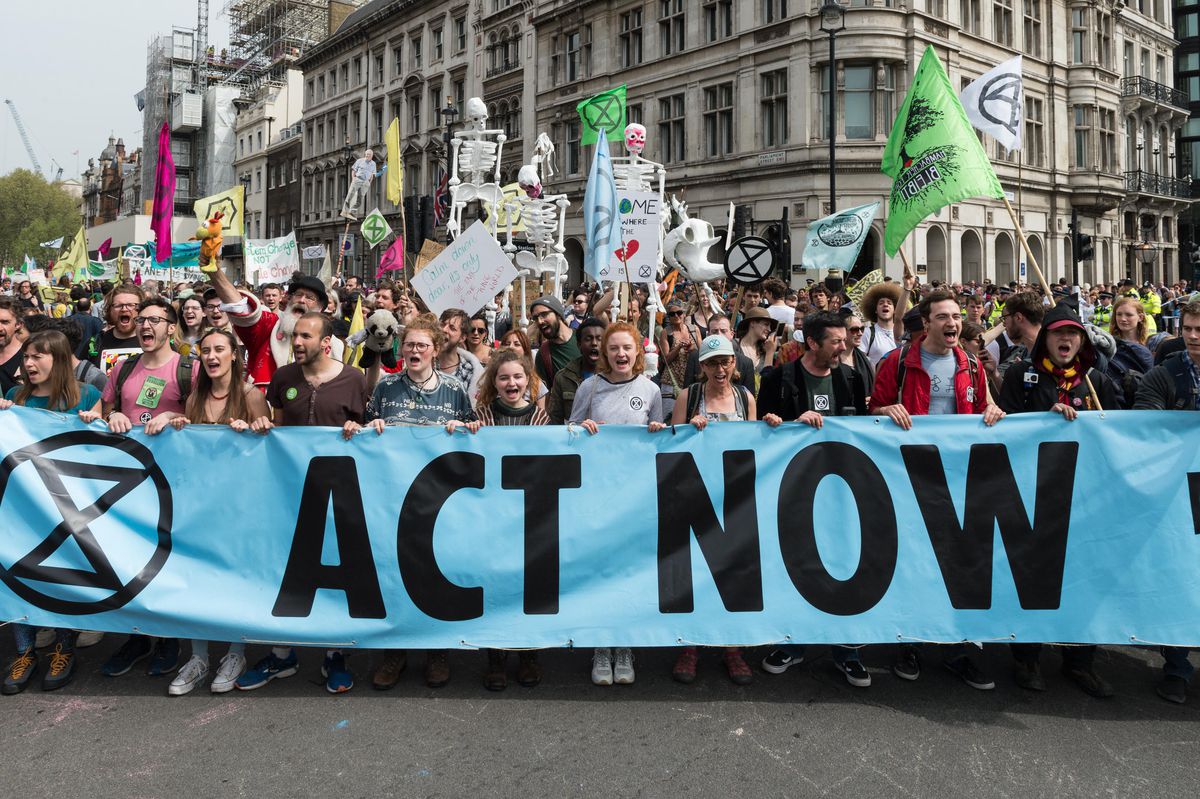11 Dec 2024

Tired Earth
By The Editorial Board

If Extinction Rebellion is successful and the Metropolitan Police are not, central London is going to be a mess for the next two weeks.
The climate change activists are apologetic about this, but also willing to do it anyway.
They believe that mass civil disobedience is the only effective means left at their disposal to force political action in the face of a planetary crisis.
The group aims to at least repeat but ideally increase the scale and impact of the April protests earlier this year, in which parts of the capital ground to a halt.
Dozens of other cities across the world may be disrupted too.
In London, XR as it is known, has detailed plans to variously block access to Westminster roads, bridges, government departments, and target the City of London and City Airport.
Other groups like Animal Rebellion plan to blockade meat markets like Smithfield.
XR says that tens of thousands are expected to turn up over the two-week period and that thousands are prepared to be arrested.
It says it wants a peaceful and nonviolent mass protest, with the ultimate aim of increasing pressure on the government to respond to the activist's demands.
Those demands are clear, but some of them are vague, and some are highly unlikely.
XR believes the severity of the climate crisis is woefully under acknowledged and wants the government to "tell the truth" about what is happening and what might happen in the future.
It wants the government to commit to stopping the loss of biodiversity and move its target to be net carbon neutral by 2050 to 2025.
And finally it wants to create "a citizen's assembly" - a representative group of the population tasked with making legally binding decisions about climate change policy.
Beyond that, it is difficult to extract a coherent vision from the group about anything more specific.
There is a good reason - Extinction Rebellion is intentionally decentralised without any real hierarchy.
It makes consensus hard to come by.
Members are reluctant to speak for the group about what exact policies might be put in place to reach the 2025 goal, for example.
And while most of them are extremely apologetic about the disruption they are going to cause, many say that any inconvenience over the coming fortnight is nothing compared to the chaos that will be wrought by the worsening effects of climate change.
Others spoke of a moral obligation to do more than just sit at home feeling scared.
And a number described a desire to be able to tell their children they tried their best.
Sky News has done quite a lot of filming with XR in the run up to this rebellion.
And for me one of the most interesting bits has been talking to individual activists about the importance of public support for their movement.
There were those who said it was absolutely crucial and acknowledged the danger that lengthy disruptions could turn the public against them, despite recent polls showing that 85% of Brits are concerned about global warming.
But others didn't see it as a problem, or at least not something the group should be preoccupied by.
A lot of people in XR subscribe to the theory, developed by a Harvard professor, that it takes just 3.5% of the population to actively engage in nonviolent civil disobedience to bring about meaningful political change.
In the UK, that would be about 2.3 million people - in reality, a huge number.
But Extinction Rebellion believes it can get there - eventually.
The coming two weeks will be a test of the public's appetite for disruption in pursuit of their cause.
Source : news.sky.com
Comment